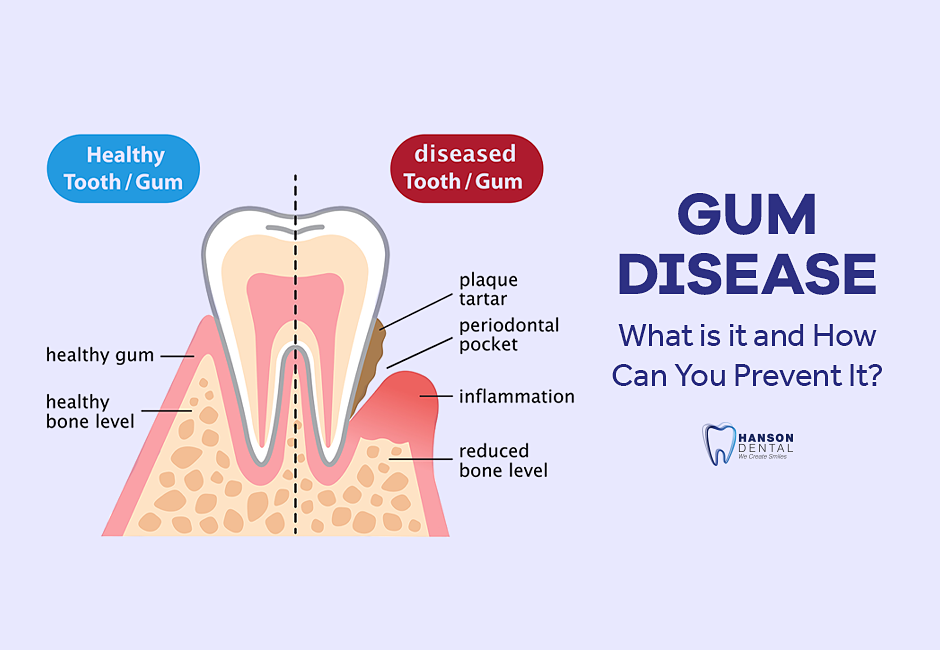Gum disease is a common condition that affects millions of Americans every year. Though it is often not given much thought, gum disease can lead to serious oral health problems if left untreated. That’s why it’s important to be aware of the signs and symptoms of gum disease and to take steps to prevent it.
What is Gum Disease?
Gum disease is an infection of the gums that can destroy the supportive tissue and bone that surround your teeth. Plaque, a sticky film of bacteria that forms on your teeth, is responsible for gum disease. Plaque begins to form when sugary or starchy foods are not removed from your teeth by brushing and flossing.
If plaque isn’t removed, it turns into tartar (calculus), which is a harder substance that can only be removed by a dentist or dental hygienist. Over time, this can irritate and inflame your gums. This inflammation is called gingivitis.
If gingivitis isn’t treated, it can progress to periodontitis, which is a more serious form of gum disease. Periodontitis occurs when the gums shrink back from the teeth, leaving open spaces called pockets. These pockets fill with plaque and tartar, which provide more opportunities for bacteria to produce infections. If left untreated, these infections could damage bones and tissues that support your teeth.
What are the Signs of Gum Disease?
The early stage of gum disease, gingivitis, usually doesn’t cause any pain. This makes it important to be aware of the other signs of gum disease so you can seek treatment as soon as possible. Some common signs of gum disease include:
– Gums that are swollen or reddish in color
– Experiencing bleeding while brushing teeth or using floss
– Having gums that feel sore or tender, and also bleed easily
– Bad breath smells that don’t go away quickly
– Teeth appearing to become more slanted back over time – also known as “receding gums”
– Experiencing loose teeth
If you experience any of these symptoms, make an appointment with your dentist right away so you can begin treatment before the condition gets worse.
How Can I Prevent Gum Disease?
Fortunately, there are steps you can take to prevent gum disease before it starts. The best way to prevent gum disease is to practice good oral hygiene habits every day. This includes brushing your teeth twice a day for two minutes with fluoride toothpaste; flossing once a day; using an antibacterial mouthwash; eating a healthy diet; avoiding tobacco products, and visiting your dentist regularly for cleanings and checkups. By taking these steps, you can help keep your smile healthy for years to come!
Treatment for Gum Disease
Treatment for gum disease varies, depending on the stage of the condition. Each person is unique and the treatment plan should be tailored to meet individual needs. Treatment may include a combination of professional cleanings, medications, and sometimes surgery. In the most advanced cases of periodontal disease, tooth loss may occur, and replacement of teeth may be necessary.
Gum disease is a serious condition that can have long-term effects on your oral health if left untreated. However, with regular checkups and good oral hygiene habits, you can reduce your risk of developing gum disease in the first place. If you suspect that you may have gum disease, it’s important to visit your dentist.
Image credit: iStock / Getty Images Plus / yomogi1

